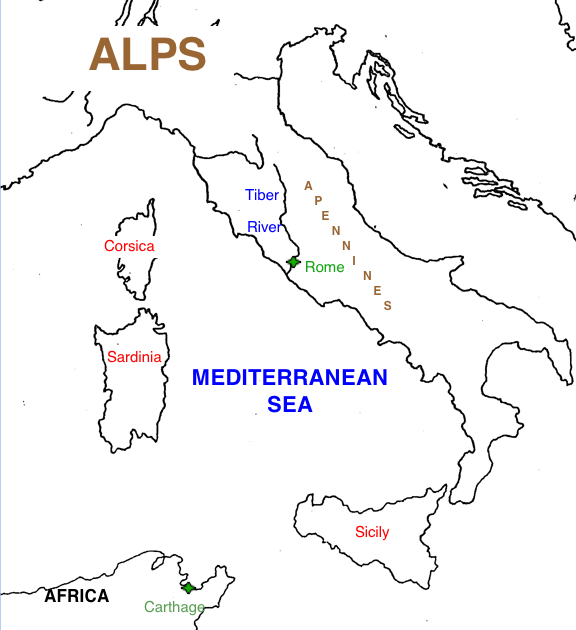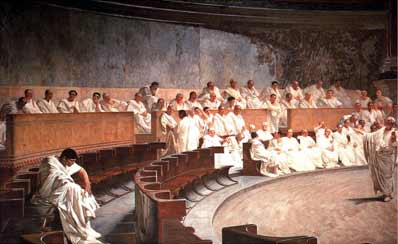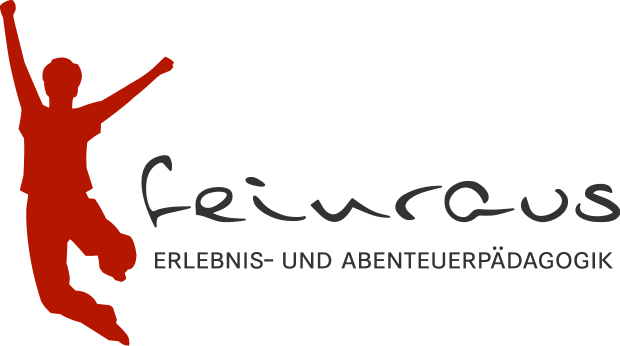NAME DATE CORE LEGACY OF THE ROMAN EMPIRE
12 MONTH REPORT WISCONSIN NONROAD CONSTRUCTION LEGACY FLEET DIESEL13 JOB APPLICATION PACK – LEGACY & INDIVIDUAL GIVING
ALSC POLICY FOR SERVICE ON THE CHILDREN’S LITERATURE LEGACY
“MANIFEST DESTINY AND ITS LEGACY 18411848” CHAPTER 17 CLASS
BRAD SIDRICK EXPERIENCE (CONTINUED) PAGE 3 LEGACY ENGINEERING LLC
CUSTOMER QUESTIONNAIRE CUSTOMER QUESTIONNAIRE LEGACY MODERNISATION LOTUS NOTES MIGRATION
Legacy of the Roman Empire
NAME: DATE: CORE #
Legacy of the Roman Empire
 Much
that we know about the beginnings of Ancient Rome comes from legend.
It is thought that farmers and shepherds lived in scattered groups of
farming villages near the Tiber River on the Italian peninsula as
early as 1900 BCE. Geography played an important part in the
development of ancient Rome. The peninsula was protected by the sea
on three sides, and the Alps to the north. By the 1500’s BCE, a
cluster of villages developed on seven hills that overlooked the
Tiber River. According to legend, the villages united to form the
town of Rome in 753 BCE. The town would grow into a city-state,
republic and then an empire. The humble farming villages on the
Italian peninsula would grow into a great civilization that would
influence the history of the world, including our own country over
two thousand years later.
Much
that we know about the beginnings of Ancient Rome comes from legend.
It is thought that farmers and shepherds lived in scattered groups of
farming villages near the Tiber River on the Italian peninsula as
early as 1900 BCE. Geography played an important part in the
development of ancient Rome. The peninsula was protected by the sea
on three sides, and the Alps to the north. By the 1500’s BCE, a
cluster of villages developed on seven hills that overlooked the
Tiber River. According to legend, the villages united to form the
town of Rome in 753 BCE. The town would grow into a city-state,
republic and then an empire. The humble farming villages on the
Italian peninsula would grow into a great civilization that would
influence the history of the world, including our own country over
two thousand years later.
The earliest form of government in ancient Rome was a monarchy, or rule by a king. The Etruscans took control of Rome and placed their own kings in power. After over a century of Etruscan rule, the Romans overthrew the last Etruscan king in 509 BCE and founded a republic. A republic is a government in which the people (citizens) choose representatives to govern them. This is a representative government. All citizens were not equal in the Roman Republic. They were divided into different social classes.
The patricians were the wealthy landowners. They also had the most power in the Roman Republic. The plebeians, or common citizens, were usually artisans, merchants, farmers, or traders. They made up the majority of the population, but had very little say in government. The third group in Rome was the slaves, who were not considered citizens. Women, though generally respected in Roman society, could not vote or hold public office. The Roman Republic had a legislature that included a senate and two assemblies. The senate, made up entirely of patricians, was the most powerful governing body. Plebeians were permitted to be elected to one of the two assemblies. The balance of government between the senate and assemblies, created one of the first systems of separation of powers. The object of separating powers is to prevent one group from having all the power. As time progressed, the plebeians gained more power, eventually establishing their own assembly with power to veto laws. Another idea firmly established in the Roman Republic was the rule of law. Rule of law is the principle that no one is above the law. Everyone in a society must obey all laws. In the Roman Republic, laws were seen as a way to give citizens both rights and protection. Many consider the laws and legal code of ancient Rome to be its greatest gift to the world.
Roman law protected citizens’ rights, life, and property as well as presenting the idea that all people were innocent until proven guilty. Under Roman law, all citizens were supposed to be treated equally without regard to their social status or wealth. Ancient Romans also had a strong sense of civic duty which served as a model for later civilizations. Citizens of the republic felt it important to be a respectable member of society, pay taxes, and obey the law. They also considered it their obligation to take a role in government, defend Rome, and serve in the military. Citizens of the Roman Republic demonstrated how highly they valued their rights by their devotion to civic duty.
Although the Roman Republic lasted only about 500 years, its laws and government still serve as models for countries in the modern world. The Founding Fathers of the United States included many elements of Roman law and government when setting up our government and legal system. The United States has a representative democracy in that the people control the government by delegating power to their representatives. The idea of a representative government originated in the Roman Republic. The Founding Fathers also adapted the idea of separation of powers from Ancient Rome. The Roman Republic had a senate and two assemblies; the United States has a Senate and House of Representatives. The roots of our legal code may also be seen in ancient Rome. As with the Roman Republic, all people in the United States are equal under the law, have their rights and property protected, and are considered innocent until proven guilty.

D EPARTMENT OF DEFENSE LEGACY RESOURCE MANAGEMENT PROGRAM NATURAL
DRAFT RECOMMENDATIONS REGARDING THE FORBUSH LEGACY DATA AT THE
EUROPEANA LEARNING SCENARIO TITLE THE LEGACY OF OUR ANCESTORS
Tags: empire much, legacy, empire, roman
- LECTURE NOTES ON SIZING NO AMOUNT OF GENIUS CAN
- WILLIAMS COLLEGE CONCERT RIDER PERFORMER PERFORMANCE DATE(S) THIS RIDER
- SUBVENCIONES DESTINADAS A LA CONCILIACIÓN DE LA VIDA LABORAL
- HAT SIZING AND HOW TO MEASURE YOUR HEAD HOW
- BALDINTZA TEKNIKOEN AGIRIA PLIEGO DE CONDICIONES TÉCNICAS
- MASTER MG 4 124 CMA ETUDES ET RECHERCHE
- DOSIER DE PRENSA ELIA BARCELÓ LA NOCHE DE PLATA
- 2ª LIGA PROVINCIAL DE MINIHOCKEY 1ª JORNADA DE LIGA
- VEČERNJI LIST UTORAK 2192004 NA FRANKFURTSKOM SAJMU KNJIGA PREDSTAVIT
- 25 LAT WOLNOŚCI ZMIANY W ORGANIZACJI RUCHU W
- AMERICAN JOURNAL OF MEDICINE MANUSCRIPT SUBMISSION CHECKLIST ARTICLE TYPE
- [PT293] LP 925781 PTTABLECHECKSUM CHECKSUM ERROR WHEN DEFAULTCHARACTERSET
- ABBEY CREEK VINEYARD ABN 49 757 396 917 MAIL
- LOS DESASTRES NATURALES LOS CASOS DE MYANMAR Y CHINA
- ROTEIRO PARA O RECONHECIMENTO DA CIDADANIA ITALIANA POR DESCENDÊNCIA
- PLAN ANUAL DE ANILLAMIENTO DEL GRUPO PARA EL
- ESTRATEGIA DE BÚSQUEDA BIBLIOGRÁFICA PARA EL OBSERVATORIO SOCIAL DE
- BIOLOGÍA 2º BACHILLER TEMA 2 GLÚCIDOS 1 CARBOHIDRATOS (GLUCIDOS)
- SERIEN SPELADES I ÖREBRO I HELGEN NÄST SISTA SAMMANDRAGET
- INSIGHT JURNAL ILMIAH PSIKOLOGI EISSN 2548–1800 VSTRAIGHT CONNECTOR 1
- ITT AZ ÚJ NISSAN ALMERA RITKA AZ OLYAN AUTÓ
- UNIT 3 SECONDARY SECTOR UNIT 3 – THE SECONDARY
- REFERAT FRA GENERALFORSAMLINGEN NORSK ORTOPEDISK FORENING HOLMENKOLLEN PARK HOTELL
- ESSENTIAL KNOWLEDGE STUDENTS ACQUIRE ESSENTIAL KNOWLEDGE AND SKILLS
- ROZDZIAŁ 2 POZEW W POSTĘPOWANIU UPROSZCZONYM WZÓR FORMULARZA P
- ADABAS NATURAL SIZING QUESTIONNAIRE ADABAS NATURAL QUESTIONNAIRE CUSTOMER PROFILE
- 3 LEY DE IMPUESTO A LAS VENTAS Y SERVICIOS
- STŘEDNĚDOBÝ PLÁN ROZVOJE A UDRŽITELNOSTI SOCIÁLNÍCH A NÁVAZNÝCH SLUŽEB
- MICROSOFT WINDOWS SERVER SYSTEM CUSTOMER SOLUTION CASE STUDY BENGAL
- CONGRESSMAN HAROLD ROGERS – KENTUCKY INTERN APPLICATION WHAT SEASON
8 TEN MYTHS OF SCIENCE REEXAMINING WHAT WE THINK
POWIATOWY SZKOLNY ZWIĄZEK SPORTOWY W PŁOŃSKU ELIMINACJE REJONU CIECHANOWSKIEGO
TABLA DE CONTINGENCIA ECO2 IQ2A IQ2 TOTAL 100
 LITERATURVORSCHLÄGE FÜR DIE ERLEBNISPÄDAGOGIK BERND HECKMAIR WERNER MICHL
LITERATURVORSCHLÄGE FÜR DIE ERLEBNISPÄDAGOGIK BERND HECKMAIR WERNER MICHL10 TEORÍA Y ANÁLISIS LITERARIO PROGRAMA 1° CUATRIMESTRE 2014
FORMULARIO DE PRESENTACION DE CANDIDATURA 2013 4º CONVOCATORIA MADRID
 D APROVECHAR LA SIMILITUD MATEMÁTICA ENTRE LAS INTERRELACIONES FÍSICAS
D APROVECHAR LA SIMILITUD MATEMÁTICA ENTRE LAS INTERRELACIONES FÍSICASANÁLISIS DE CAPACIDAD DE CONSERVACIÓN INSTRUCCIONES ESTA HOJA DE
 ¿VERDADERO O FALSO? 1 LA SALSA ES UNA MÚSICA
¿VERDADERO O FALSO? 1 LA SALSA ES UNA MÚSICA KOD HANDLOWCA NR PPE NR EWIDENCYJNY UKGKEE VER UKGKEE06
KOD HANDLOWCA NR PPE NR EWIDENCYJNY UKGKEE VER UKGKEE06 CITHÍR CITÁCIÓS HÍRLEVÉL 2019 TÉL KÉSZÍTETTE KOZMÁNÉ SIKE EMESE
CITHÍR CITÁCIÓS HÍRLEVÉL 2019 TÉL KÉSZÍTETTE KOZMÁNÉ SIKE EMESELA GACETA Nº 212 — VIERNES 29 DE OCTUBRE
 SAMODZIELNY PUBLICZNY ZAKŁAD OPIEKI ZDROWOTNEJ SZPITAL NR 2 IM
SAMODZIELNY PUBLICZNY ZAKŁAD OPIEKI ZDROWOTNEJ SZPITAL NR 2 IM8 FILMOGRAFÍA ORIENTATIVA PARA TRABAJAR LA MULTITERCULTURALIDAD Y EL
19 A STÍLUS JELENTÉSKÖZVETÍTŐ SZEREPE I NYELV ÉS STÍLUS
PRZEWODNIK DO ZMIAN W PROGRAMIE UZYSKIWANIA KWALIFIKACJI ZAWODOWYCH PRZEZ
 SOLICITUD DE MODIFICACIÓN DE DATOS BANCARIOS (PERSONAL NO
SOLICITUD DE MODIFICACIÓN DE DATOS BANCARIOS (PERSONAL NO PRESS RELEASE FOR APRIL 1 2008 MINISTER BRENDAN SMITH
PRESS RELEASE FOR APRIL 1 2008 MINISTER BRENDAN SMITHREGULAMIN UCZESTNICTWA W KOLONII ORGANIZOWANEJ PRZEZ KRAJOWĄ RADĘ IZB
I WOULD LIKE TO TAKE THIS OPPORTUNITY TO PRESENT